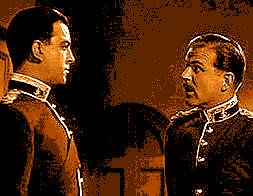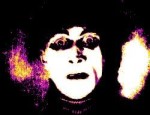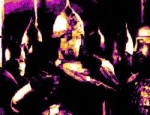Film Review
The fourth and easily the best of the seven screen adaptations of A.E.W. Mason's
popular adventure novel,
The Four
Feathers marked one of the highpoints of British cinema in the
1930s and was a personal triumph for its esteemed producer, Alexander
Korda. With the kind of lavish production values that are now
taken for granted but which were then exceptionally rare in British
cinema, this was a film that enthralled audiences when it was first
released and has since been held in high esteem, in spite of its
inescapable racist undertones and some excruciating overt jingoism.
Zoltan Korda (the producer's brother) directs the film with considerable flair
throughout, but he appears particularly inspired by the battle
sequences, which are amongst the best ever to have featured in a
British film. The glorious Technicolor photography gives the film
both a keen edge of realism and a subtle poetry, capturing not just the
majestic beauty of the desert location, but also its unremitting harshness. The
performances are exemplary, with particularly memorable contributions
from John Clements and Ralph Richardson, although the stiff upper lip
delivery does occasionally lend a hint of unintentional mirth.
Alexander Korda's unbridled anglophilia is well-known and
The Four Feathers is the film that
most vividly demonstrates his love of all things English. No film
celebrates the British Empire and the myth of flawless British
rectitude and valour as fervently as this one. Today, it is
easy to criticise the film for its distinctly unflattering portrayal of African
natives (Fuzzy Wuzzies with silly wigs and even sillier dances) and
some may even write it off as a facile piece of wartime propaganda.
(Even though it was released a few months before the Nazis invaded
Poland, the film would undoubtedly have helped recruitment into the
armed services, especially as most of the population saw that a war
with Germany was inevitable.) Whilst such criticisms are
valid, they should not detract from the film's unquestionable artistic
achievement.
The Four Feathers
is a stunning piece of cinema and the most sincere expression of the
noblest characteristics of the British.
© James Travers 2009
The above content is owned by frenchfilms.org and must not be copied.
Film Synopsis
In 1895, the British army is about to launch an attack against the
Sudanese, ten years after General Gordon's humiliating
defeat. On the day before his regiment leaves England,
officer Harry Faversham resigns his commission, knowing that he is not
cut out for the life of a military man. His fellow officers,
Burroughs, Willoughby and Durrance, each send him a white feather which
signifies their contempt for his cowardice. Knowing that
his fiancée, Ethne, is also disappointed with him, Faversham
takes a fourth feather from her fan and, to redeem himself, he decides
to join in the war in Sudan. The only way he can reach his
regiment is for him to disguise himself as a mute Sangali native.
Faversham can have no idea what ordeals lie ahead, but he is determined
to press on and persuade his erstwhile friends to take back their
feathers...
© James Travers
The above content is owned by frenchfilms.org and must not be copied.



